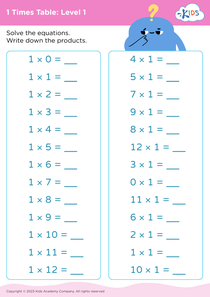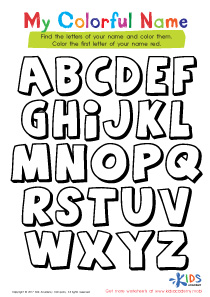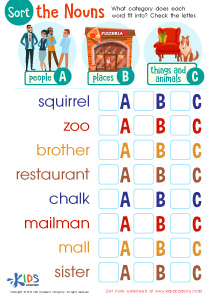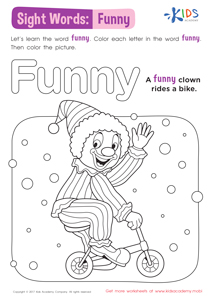Fine Motor Skills Easy Grade 3 Letter Recognition Worksheets
6 filtered results
-
From - To
Enhance your Grade 3 child's learning with our engaging Fine Motor Skills Easy Letter Recognition Worksheets! Specifically designed to boost their letter identification skills, these worksheets combine fun activities with fine motor development exercises. Students will practice tracing, coloring, and lifting letters while mastering the alphabet in an enjoyable way. These worksheets not only reinforce letter recognition but also support hand-eye coordination and dexterity, essential for their overall development. With varied and interactive tasks, your child will stay motivated while building a strong foundation for reading. Explore our collection today and watch their confidence soar as they master Letter Recognition!
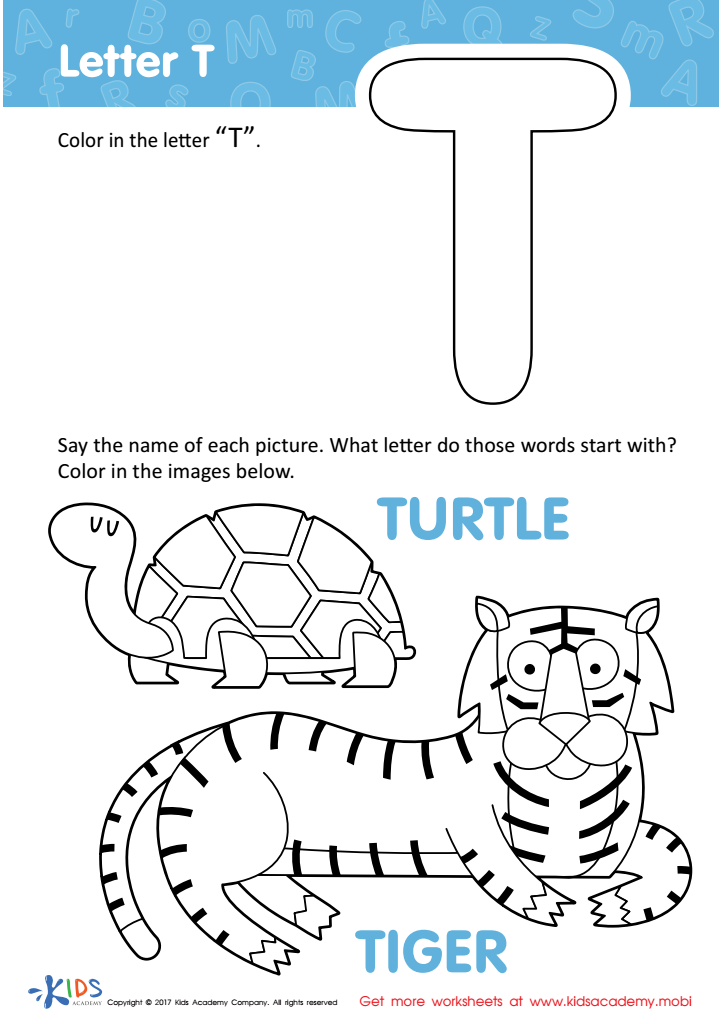

Letter T Coloring Sheet
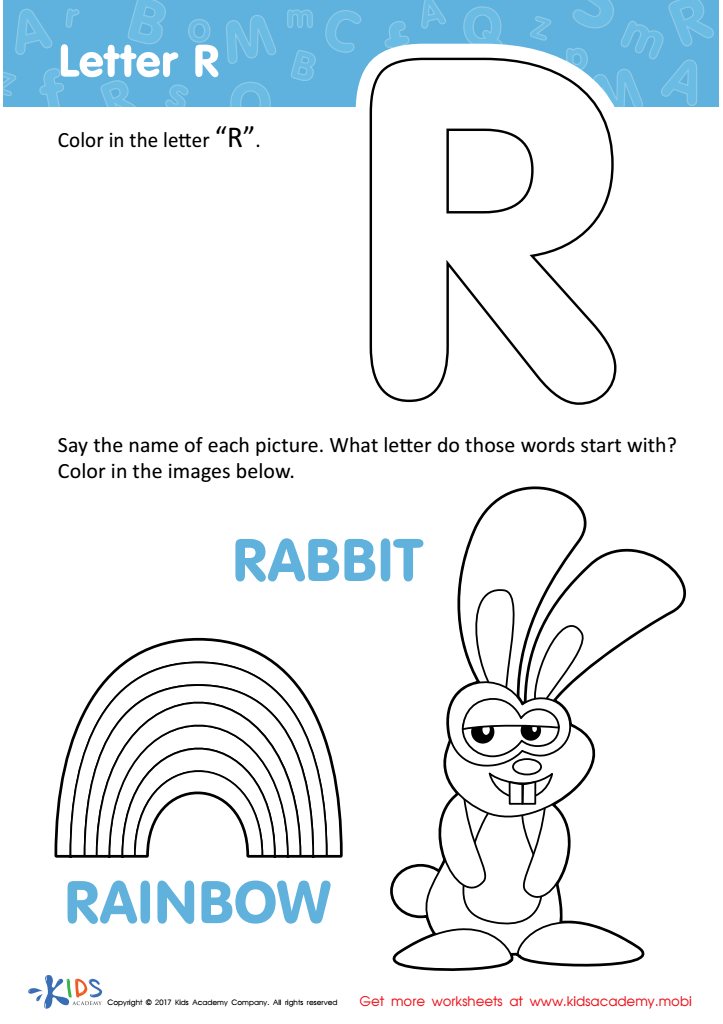

Letter R Coloring Sheet
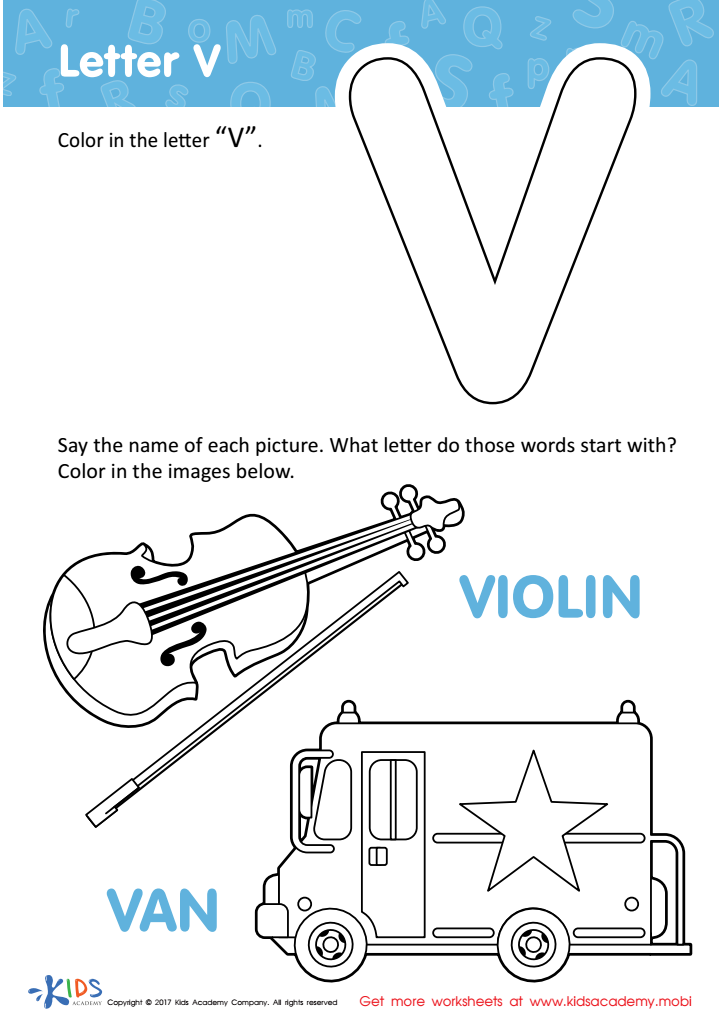

Letter V Coloring Sheet
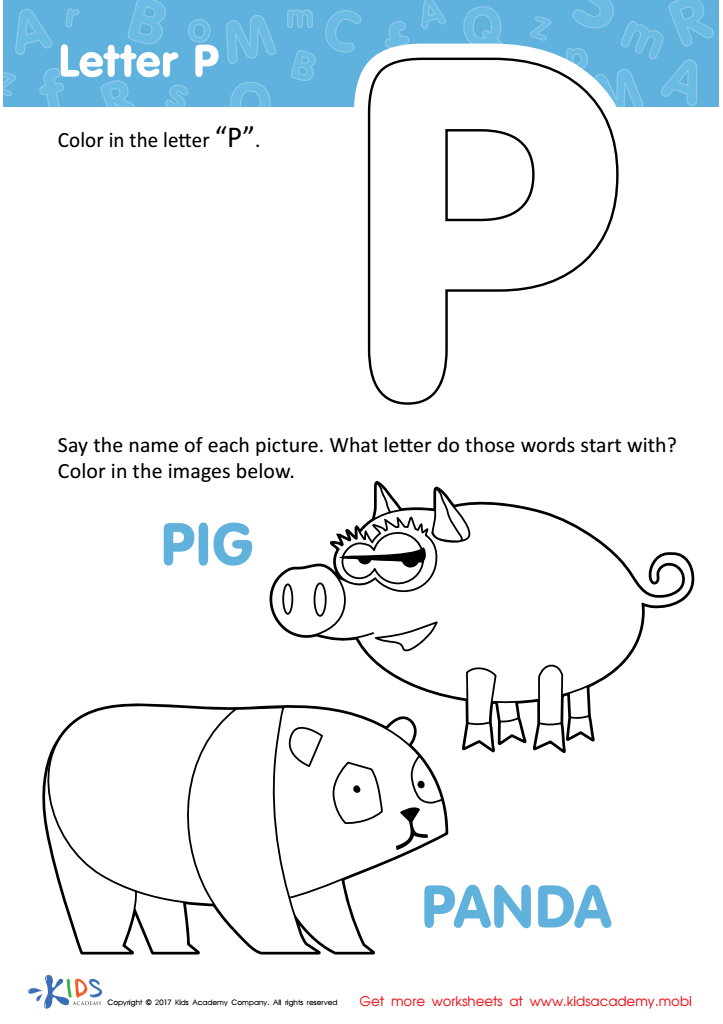

Letter P Coloring Sheet
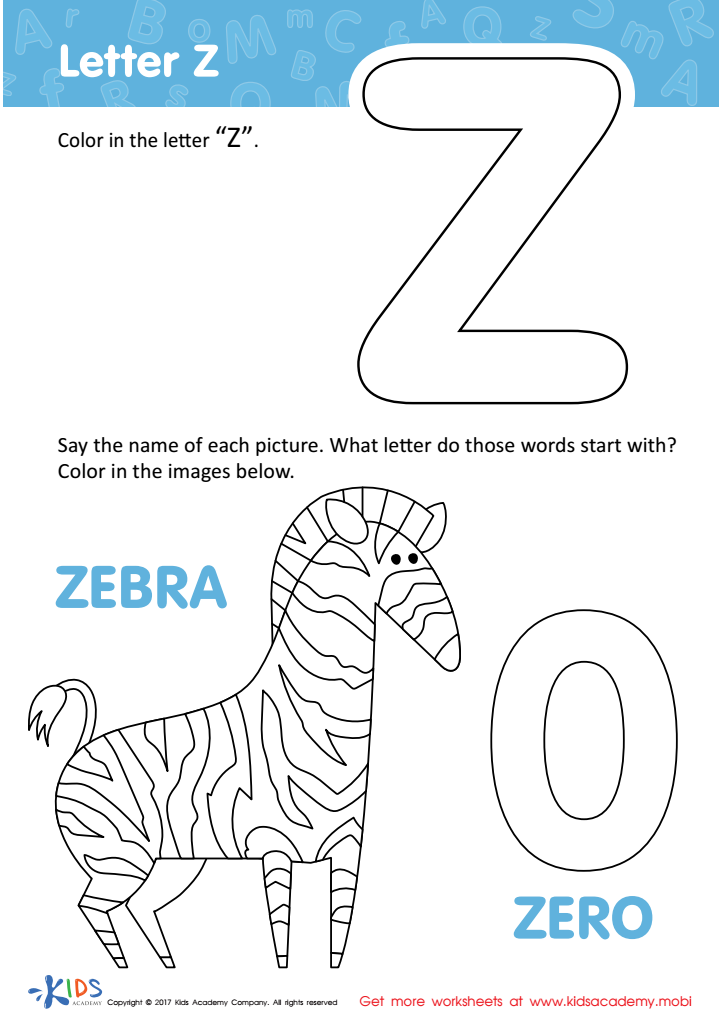

Letter Z Coloring Sheet
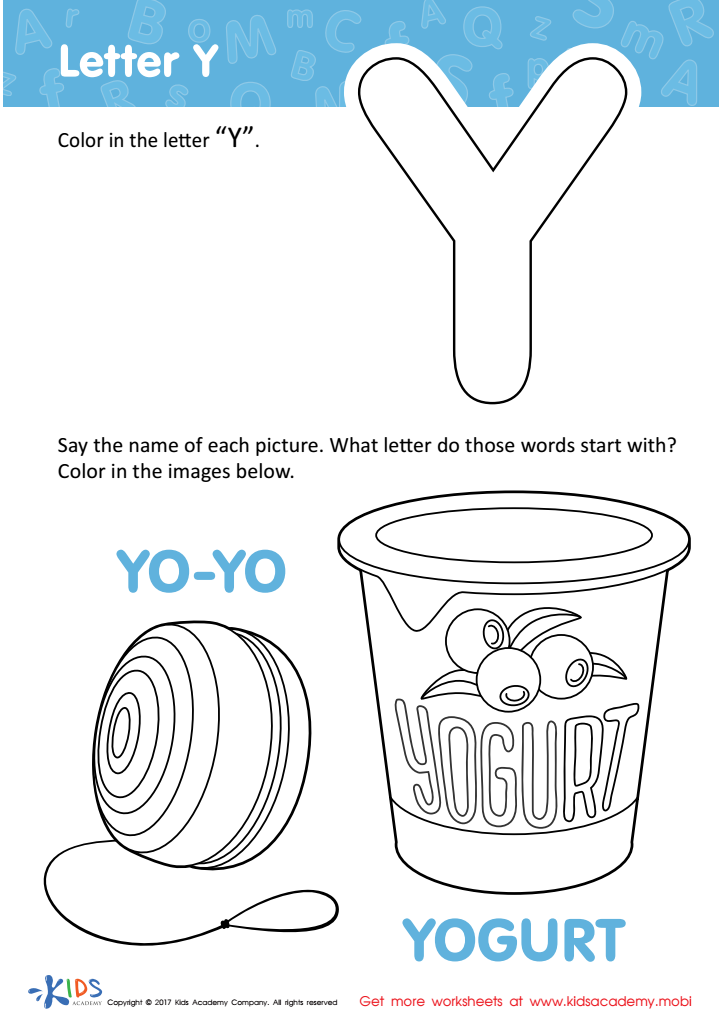

Letter Y Coloring Sheet
Fine motor skills play a crucial role in a child’s development, particularly for activities like writing and drawing. For Grade 3 students learning letter recognition, strong fine motor skills enhance their ability to manipulate writing tools effectively, encouraging better handwriting and more precise letter formation. This aids not only in their literacy development but also fosters confidence in their expression.
When parents and teachers emphasize the importance of fine motor skills, they support core academic skills, facilitating language development and reading comprehension. Fine motor activities, such as cutting, coloring, and tracing, allow children to practice and reinforce their understanding of letter shapes and sounds. Additionally, these skills are closely linked to cognitive development, as they provide opportunities for problem-solving and creativity.
For parents, being involved in their child's fine motor skill development can strengthen their bond and encourage a love for learning. Teachers can integrate fine motor activities into the curriculum, making learning engaging and effective. Investing time and resources in advancing fine motor skills ultimately contributes to a child's success, setting a solid foundation for their future educational journey, enhancing their self-esteem, and equipping them with essential life skills. Thus, it's vital that parents and teachers actively invest in fostering these skills during early education.
 Assign to My Students
Assign to My Students









